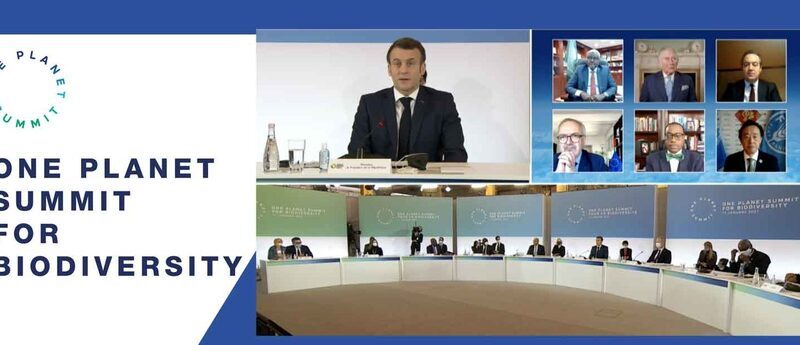
$30 trln in additional investments required to achieve net zero in 8 hard-to-abate sectors
The Net Zero Industry Tracker 2024 estimates that $30 trillion in additional capital will be required across ...

The African Development Bank (AFDB) pledged to mobilize up to to $6.5 billion over five years to support the Green Wall Initiative – Africa’s flagship initiative to combat the increasing desertification.
The Sahel region’s Great Green Wall Initiative received this major boost from the African Development Bank on Monday during a forum hosted by French President Emmanuel Macron and His Royal Highness the Prince of Wales on the fringe of the One Planet Summit.
The European Investment Bank (EIB) has also pledged EUR 1 billion of new financial and technical support to back sustainable agriculture, clean energy, water, infrastructure and private sector financing in 11 Sahel countries.
The Agence française de dévelopment (AFD) also earmarked EUR 600 million for this initiative.
For its part, the African Development Bank resources will be made available through a range of programs in support of the Great Green Wall by drawing on internal as well as external sources of funding, such as the Sustainable Energy Fund for Africa (SEFA) and the Green Climate Fund (GCF), among others.
Multilateral development partners joined the bank in pledging funding for the African-led initiative that aims to rejuvenate life in Africa’s current desert landscapes, providing food security, jobs and a reason for millions of Africans from Senegal to Djibouti to stay in the Sahel region.
According to Bank President Akinwumi Adesina, “As we rebuild from the coronavirus and its impacts on our world, we must recalibrate growth. We must prioritize growth that protects the environment and biodiversity, and we must de-prioritize growth that compromises our common goals.”
Addressing the summit virtually from Abidjan, Adesina informed delegates that, “The Great Green Wall is part of Africa’s environmental defence system—A shield against the onslaughts of desertification and degradation. The future of the Sahel region depends on the Great Green Wall. Without the Great Green Wall, the Sahel region as we know it may disappear.”
Climate change has led to extreme temperatures, fluctuating rainfall and drought in the Sahel, a region that is home to 250 million people living in ten countries. Millions of livelihoods and hard-won development progress are threatened.
The Great Green Wall’s plan is to plant an 8,000 km long and 15 km wide mosaic of trees, grasslands, vegetation and plants across the Sahara and Sahel that can restore the degraded lands and help the region’s inhabitants produce adequate food, create jobs and promote peace in the region.
“The Great Green Wall is a wall worth building. A wall that brings people together, not one that pulls them apart. A wall that insulates, not one that isolates. A wall that protects our collective existence. A wall for the environment—a wall for the planet,” Adesina said.
A lack of finance has been the project’s major constraint to realizing its goal of creating 10 million jobs, sequestering 250 million tonnes of carbon and restoring 100 million hectares of degraded land in the 11 countries of the Sahel-Sahara region.
The Bank has made the Sahel region a top priority for investment and mobilizing new sources of finance to advance Africa’s climate opportunities. One example is the African Development Bank’s Desert-to-Power program to build the largest solar zone power in the world.
The program will provide electricity to 250 million people in 11 Sahel countries and help protect the Great Green Wall. Over the next five years, Desert-to-Power aims to make available $2 billion for identified project opportunities for the Great Green Wall Initiative.
The Net Zero Industry Tracker 2024 estimates that $30 trillion in additional capital will be required across ...
Egypt is gearing up for the 2025 Human Development Report, and debt swap initiatives, all ...
The European Bank for Reconstruction and Development (EBRD), the United Kingdom’s High-Impact Partnership on Climate ...


اترك تعليقا